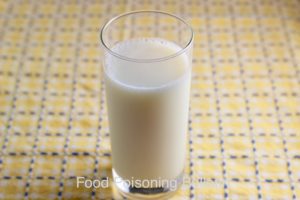A new literature review study conducted by Belgian researchers and published in the journal Food Control has concluded that there are no benefits and lots of risk in consuming raw milk. Scientists reviewed the risks and benefits related to consumption of raw and pasteurized milk, considering the presence of pathogens, pathogen growth inhibition by lactic acid-producing and probiotic bacteria, and nutritional and health aspects of both products.
 They conclude by stating “it is demonstrated that consumption of raw milk poses a realistic health threat due to a possible contamination with human pathogens. With the exception of an altered organoleptic (taste and texture) profile, heating will not substantially change the nutritional value of raw milk or other benefits associated with raw milk consumption.”
They conclude by stating “it is demonstrated that consumption of raw milk poses a realistic health threat due to a possible contamination with human pathogens. With the exception of an altered organoleptic (taste and texture) profile, heating will not substantially change the nutritional value of raw milk or other benefits associated with raw milk consumption.”
First, some history: before 1938, about 25% of all foodborne and waterborne disease outbreaks in the US were associated with milk, but today, the percentage of those outbreaks is less than 1%. Between 1880 and 1907, 29 milk-borne outbreaks were reported every year in the US. After pasteurization, there were only 46 outbreaks total from 1973 to 1992. And the vast majority of milk-borne outbreaks in the US occur in states that permit raw milk sales.
In England and Wales, the vast majority of milk-borne outbreaks during the 1980s were attributed to the consumption of raw milk. In Scotland, raw milk outbreaks were common until the sale of unpasteurized milk was prohibited in 1983, which led to a significant drop in outbreaks.
The study states that, “These surveys clearly demonstrate that raw cow milk can be a source of foodborne pathogens of human health significance, with Salmonella, Campylobacter and E. coli being the main bacteria that may be transferred from raw milk to humans. Considering the data, it is clear that the risk for consumers can be considered real, and even high in case raw milk would be frequently consumed.”
The authors state that heating milk has negligible effect on amino acids, little effect on protein digestibility and nutritional properties, no effect on milk lipids, and zero effect on vitamins, minerals, and trace elements. Raw milk contains probiotic bacteria, but in such small amounts that “the relevance and number of these bacteria are too limited to have any physiological effect for consumers.”
In addition, milk enzymes do not contribute to the digestibility of milk, and most of those enzymes in milk are destroyed by the low pH of human stomachs before they have any effect. Pasteurization has no significnat effect on lactose levels in milk. Finally, milk allergies are independent of whether milk has been pasteurized or not, and all milk, raw or pasteurized, contains lactose and no lactase.
The authors also say that “most studies alluding to a possible protective effect of raw milk consumption do not contain any objective confirmation on the raw milk status or a direct comparison with heat-treated milk. Moreover, it seems that the observed increased resistance seems to be rather related to the exposure to a farm environment or to animals than to raw milk consumption.”
In fact, the only counter-argument against pasteurization is the change in the taste, texture, and aroma. But even that perception is mostly determined by the milk fat content. The authors state that raw milk poses a “realistic and unnecessary health threat because of its possible contamination of pathogenic bacteria.” Moreover, “historical data show that the pasteurization of milk has led to an improved public health. Almost all arguments put forward by raw milk proponents for not heating milk can be refuted, and the only substantial disadvantage of heating is the change in the organoleptic profile of milk. It is clear that this ‘detrimental’ effect of heating does not countervail the risk posed by raw milk consumption.”




